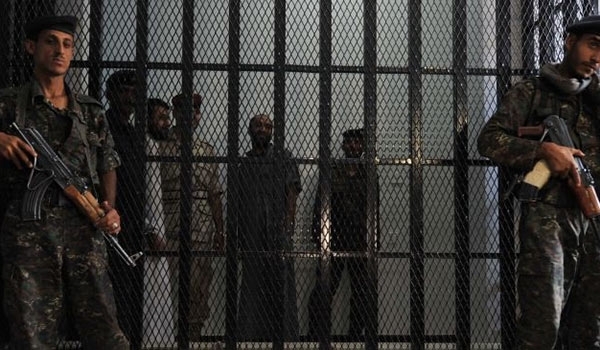
RNA - "The torturers forcefully take the inmate to a solitary confinement, beat them savagely and sterilize him," Ali al-Hobaishi told.
Noting that the al-Khalifa agents have been trained by the British spy agencies for carrying out such crimes, he said, "The intelligence relations between Manama and London have increased in recent weeks."
Since February 14, 2011, thousands of anti-regime protesters have held numerous demonstrations in Bahrain on an almost daily basis, calling on the al-Khalifa rulers to relinquish power.
In March that year, troops from Saudi Arabia and the United Arab Emirates, themselves repressive Arab regimes, were deployed to the country to assist Manama in its crackdown on protests. Hundreds of Bahraini activists have been imprisoned and suppressed.
On June 20, Bahraini authorities stripped Sheikh Qassim of his citizenship, less than a week after suspending the al-Wefaq National Islamic Society, the country’s main opposition bloc, and dissolving the Islamic Enlightenment Institution founded by Qassim, and the opposition al-Risala Islamic Association.
Over the past few weeks, demonstrators have held sit-in protests outside Sheikh Qassim’s home to denounce his citizenship removal.
Bahrain has also sentenced Sheikh Ali Salman, another revered opposition cleric, to nine years in prison on charges of seeking regime change and collaborating with foreign powers, which he has denied.
Sheikh Salman was the secretary general of the al-Wefaq National Islamic Society, which was Bahrain’s main opposition bloc before being dissolved by the regime.
A female Bahraini activist who was freed from jail in December disclosed that women have long been tortured and raped in her country's prisons, adding that the Manama regime's clampdown on human rights organizations has forced them to avoid covering such crimes.
"When torturing women, all methods are used, including electric chairs, sexual harassment, rape, threats to rape, severe beating, deprivation of eating, drinking and sleeping for a long time and insulting prisoners' faiths and beliefs," the activist, who called for anonymity for the fear of her life, told FNA.
She also said many detained women have also been deprived of their right to return to work, specially in the government sector, even after release.
The activist added that certain human rights institutions have recorded many reports on torture and rape against women in Bahrain's jails but the government has dismissed and prevented their release.
847/940